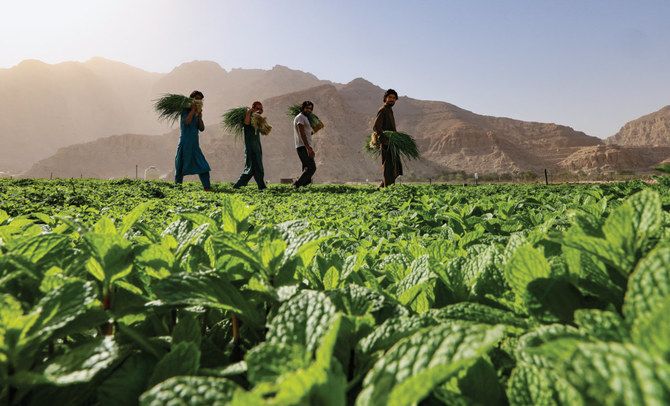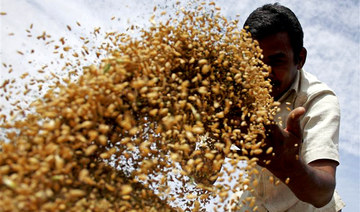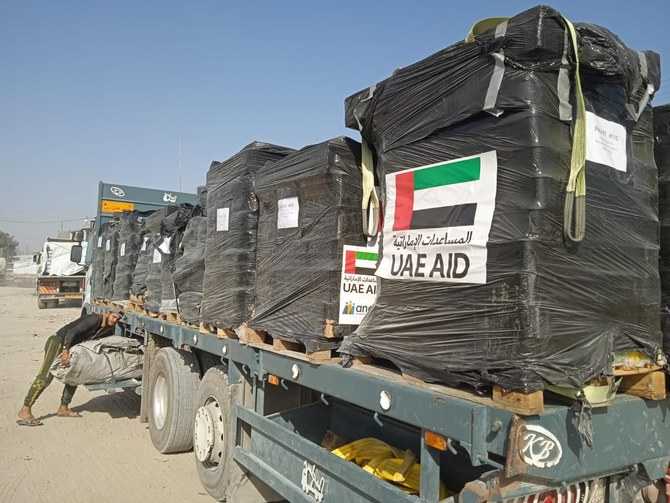DUBAI: In an age of plentiful food, it is often easy to forget just how fragile supply chains are until disaster strikes. One bloc taking stock of its pantry is the GCC, whose members import some 90 percent of their food.
Although the GCC countries managed to avoid the nightmare scenario of mass shortages during the worst days of the coronavirus pandemic, the crisis has certainly given Arab capitals plenty to chew over concerning their long-term food security.
“Ministries really got a wake-up call during this time of distress and are trying to escalate their own initiatives, being able to have more local produce and be more food secure in the years to come,” Atle Idland, general manager of Desert Control Middle East, told Arab News.
“The pandemic has been a catalyst for many countries and governments to get their plans up from the table and into action.”
Desert Control is among a crop of agri-tech firms that will showcase their innovations at Expo 2020 Dubai in October this year.
The Norwegian start-up has patented Liquid NanoClay (LNC), an agri-technology that binds a mineral-rich solution to grains of desert sand, converting once unusable land into arable soil, reducing water irrigation by 50 percent and radically improving crop yields.
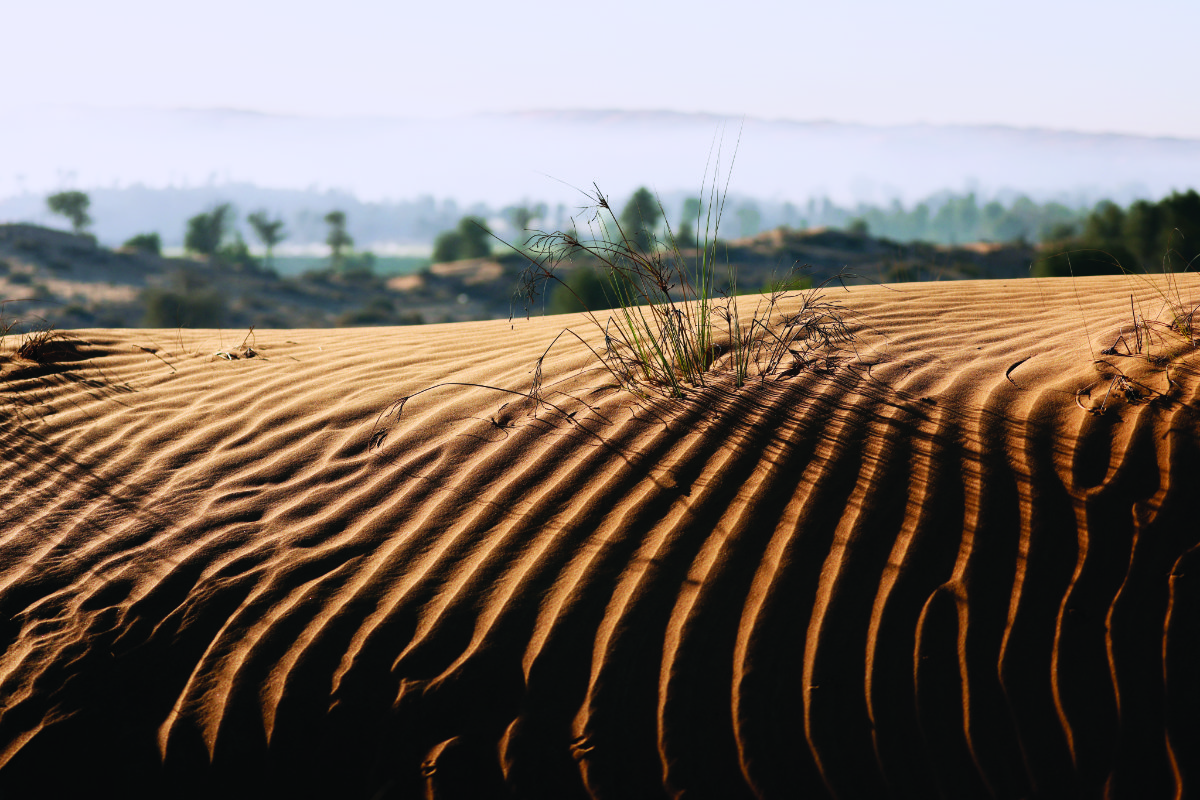
Famine is a realistic concern, as food production struggles to keep up with population growth. (AFP)
“The region has been producing a very limited number of agricultural crops, due to the climate itself, and also due to the water scarcity in the region,” Idland said.
“Give that both Saudi Arabia and other Gulf countries are running low on their aquifers of fresh water, and that agriculture is using 75 percent of the world’s freshwater resources, this is not a sustainable process. It cannot continue.”
According to the UN, some 135 million people could lose their homes and livelihoods to creeping desertification by 2030. Inhabitants of the Middle East and North Africa are more vulnerable than most.
Unless societies change their farming practices, Idland warns, the world has just 60 years of agricultural opportunities left before fresh water runs dry and desertification claims the last of its fertile soils.
“Adopting new technologies for agriculture and food security is definitely something that is on the table right now and is being implemented as we speak,” he said.

Atle Idland, general manager of Desert Control Middle East
Growing food at a local level has the added benefit of reducing the industry’s carbon footprint by cutting the amount of air freight needed to meet demand.
Idland claims LNC is radical in the sense that it is a low energy and purely mineral-based product containing zero chemical agents. “It’s only clay, water and oxygen that is mixed together to produce a Liquid NanoClay solution,” he said.
The Middle East is described by Idland as a major potential marketplace for LNC to lay down roots. “We are one, and not the only one, that can be a catalyst for utilizing unused desert land and sandy soils to do large scale agriculture,” he said.
In its initial commercial trials in the UAE, according to Idland, Desert Control’s product was found to produce 20 percent more watermelons and 60 percent more pearl millet compared with traditional means, while using just half the water.
Saudi Arabia is next in line.
“I came back from the Kingdom in early February and we are having some interesting discussions there, both within the agricultural sector and the sporting field sector,” Idland told Arab News.
“Everybody has the need to go greener, more sustainable and with water savings. Water scarcity is really the main driver for this trend.”
INNUMBERS
75% - Proportion of global freshwater used by agriculture.
135 million - Livelihoods imperiled by desertification by 2030.
10 billion - Projected global population by the year 2050.
On the downside, agri-technologies such as vertical farming and greenhouse cultivation, which allow non-native crops to grow closer to sources of demand, are known to consume a lot of energy for lighting and warmth and to desalinate water for irrigation.
Scientists believe desertification and climate change are intricately connected, although human mismanagement is also responsible. Increasing atmospheric greenhouse-gas concentrations reduce the amount of heat radiation escaping to space and thus lead to a gradual increase in global temperatures.
Rising temperatures, coupled with changing precipitation patterns, are expected in turn to increase the rates of dryland degradation and desertification. Already, every year the world’s deserts encroach upon an area roughly 20 times the size of Denmark, swallowing up the rich biodiversity that lives in the soil.
“We will be in big trouble,” Idland said. “Based on research, knowledge, intent and visions, everybody now is putting serious effort into this. We are glad to be part of that journey and, hopefully, to be a part of that solution. Making Earth green again — that’s our slogan.”
By 2050, the world’s food systems will need to feed an estimated 10 billion people. But at the current rate of production, only half that number will be fed. Widespread famine is a real possibility.
At the same time, outmoded agricultural practices are a significant emitter of greenhouse gases.
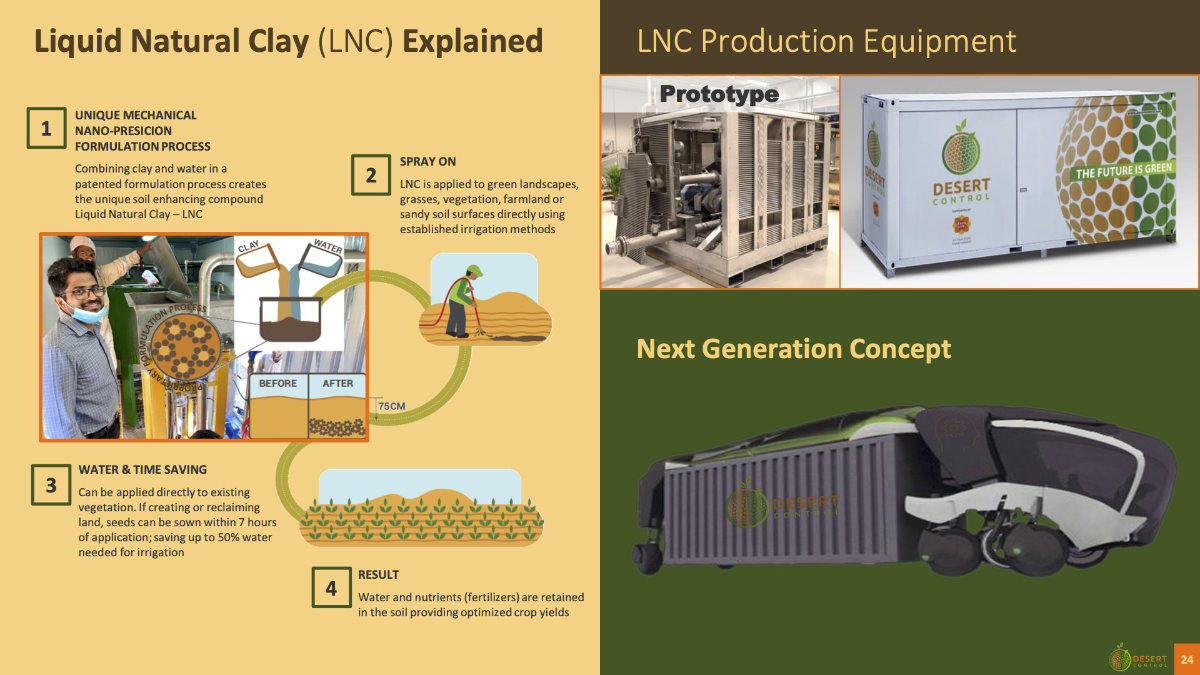
“With climate change affecting food production, it’s not hard to see that we are in a vicious cycle,” said Mariam Almheiri, UAE minister of state for food security, while taking part in a recent pre-Expo 2020 Dubai Thematic Week session.
“In short, nothing short of an entire paradigm shift in how we produce food and deliver it from farm to fork is needed if we are to create sustainable food systems, no hunger, and food security for the world.”
The concerns were echoed by Reem Al-Hashimy, UAE minister of state for international cooperation and managing director of the Expo 2020 Dubai bid committee.
“Today, food security stands as a hallowed and unassailable tenet of true human dignity,” she said. “The capacity of all nations was tested in the early weeks and months of the COVID-19 pandemic, which exposed the vulnerability of our global food value chain.
“Yet in the wake of that harsh examination, now we are presented with an opportunity to reimagine our chain and learn to eat and earn cleaner and smarter, and in a more sustainable fashion.”
Later this year, Expo 2020 Dubai will bring together stakeholders from every part of the chain, from producers to facilitators to consumers.
“Expo will be a marketplace for ideas and innovation, a chance to absorb best practice from more than 190 countries, and take it home with you, and apply it into pastures — learning global and practicing local, overcoming shared challenges through intelligent and transferable solutions,” Al-Hashimy said.
Another challenge is food waste, whereby one in three mouthfuls is wasted by producers, retailers and consumers. Poor farming practices are also responsible for deforestation, land degradation and pollution.
ALSO READ: How the Arab region can catch up with the future of food
“We know we must do better,” Al-Hashimy said. “We will actively seek fertile alternatives to antiquated practices that strip larger and larger stretches of arable land, while reaping ever decreasing economic benefits.
“We are already paying the price for encroaching too vigorously on the natural world, in the form of the zoonotic disease COVID-19 that has decimated lives and economies around the world.”
Future economic models must work for the benefit of billions of people whose quality of life depends on an equitable system that rewards responsible and productive practices and protects the land these communities call home, said Al-Hashimy.
“This is a moment in which meaningful and effective international cooperation can entirely recast antiquated structures founded on centuries-old imbalances — imbalances we can no longer sustain and under which we will never truly thrive.”
_____________
• Twitter: @CalineMalek







